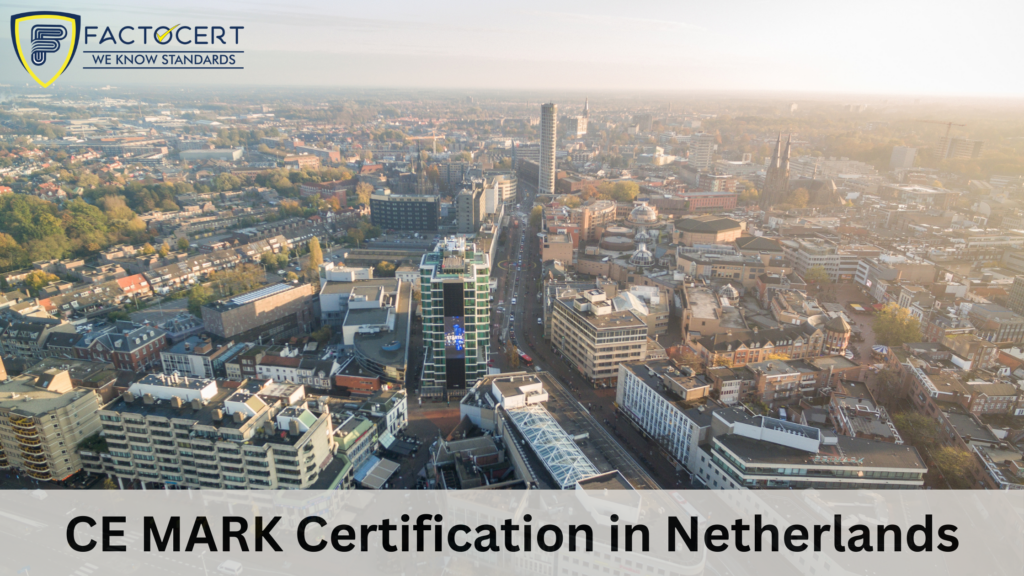CE MARK Certification in Netherlands: In the dynamic corporate realm, especially in the European Union (EU), strict regulations and standards are crucial. For most firms, CE MARK Certification in Netherlands is not an option; it is a legal obligation. This mark indicates that a product meets health, safety and environmental protection requirements for those products on sale within EU. Still, getting a CE MARK Certification in Netherlands means working through a complex regulatory system. In this guide, we look into particular norms and rules that companies must consider while seeking to obtain CE Mark Certification in Netherlands.
Understanding the Process of CE Mark Certification in Netherlands
Before going into further details let us briefly outline what constitutes the process of CE MARK Certification in Netherlands. This involves determining whether or not the products depicted meet the minimum requirements of relevant European Union Directives and Regulations. When products conform to these requirements, their manufacturers attach a marking on them after which they should be able to distribute them freely across any member state.
1. Product Specific Directives & Regulations
One vital thing you need to know about CE MARK Certification in Netherlands is being aware of your industry’s product specific directives & regulations; for instance medical devices directive, machinery directive and low voltage directive etcetera. These define minimum requirements which must be met by goods so as to ensure consumer safety ,health ,and environment preservation,& many others such like which are:
Medical Devices Directive (MDD): This relates to medical device manufactories where MDD requires certain criteria concerning product safety, performance and quality management systems.
Machinery Directive: Concerning companies who manufacture machines; focus lies on design aspects including risk assessment.
Low Voltage Directive (LVD): Looking at electrical equipment; LVD ascertains that electricity associated hazards do not expose users or consumers to risks.
2. Health & Safety Standards Compliance
High levels of health and safety standard compliance have got to be achieved for one’s enterprise to obtain CE MARK Certification in Netherlands. Companies need to properly carry out risk assessments with respect minimizing dangers posed by their products. This involves correct labels, user instructions in the right language and anticipated product misuse prevention.
3. Environmental Considerations
CE MARK Certification in Netherlands is also about environmental concerns; companies have to assess impacts of their products on the environment throughout their life cycle from production to disposal. Meeting this requirement may entail such things as lowering energy consumption, waste minimization or using environmentally friendly materials whenever possible.
4. Technical Documentation & Conformity Assessment
CE MARK Certification in Netherlands conformity with the relevant directives and regulations must be documented. There must be a comprehensive technical documentation which proves that essential requirements are being complied with by the company involved. Furthermore, depending on which directive applies to your goods, you may need to go through a conformity assessment process that could include self-certification, involvement of notified body or combination of both.
5. Declaration of Conformity
When all these requirements are met, firms will issue a Declaration of Conformity (DoC). It is important to note that this document should indicate clearly that the product complies with EU Directives and Regulations in question. The DoC has to be made available when requested by concerned authorities and accompany the product throughout its life span.
Conclusion:
Charting a way through the labyrinthian maze of CE Mark Certification in Netherlands
To wrap up, the process of getting CE Mark certification in Netherlands is a complicated one and it needs attention to detail and adherence to standards and regulations. To navigate through these complexities of CE MARK Certification in Netherlands, firms should know product-specific directives; comply with health, safety and environmental requirements; and keep good records. In addition to that, consulting regulatory experts and utilizing resources available might quicken the certification process which consequently leads to EU market access being guaranteed smoothly.
Why Factocert for CE MARK Certification in Netherlands
We provide the best CE MARK consultants in Netherlands who are knowledgeable and provide the best solution. And to know how to get ISO certification. Kindly reach us at contact@factocert.com. work according to ISO standards and help organizations implement CE MARK Certification in Netherlands with proper documentation.
For more information, visit CE MARK Certification in Netherlands











































